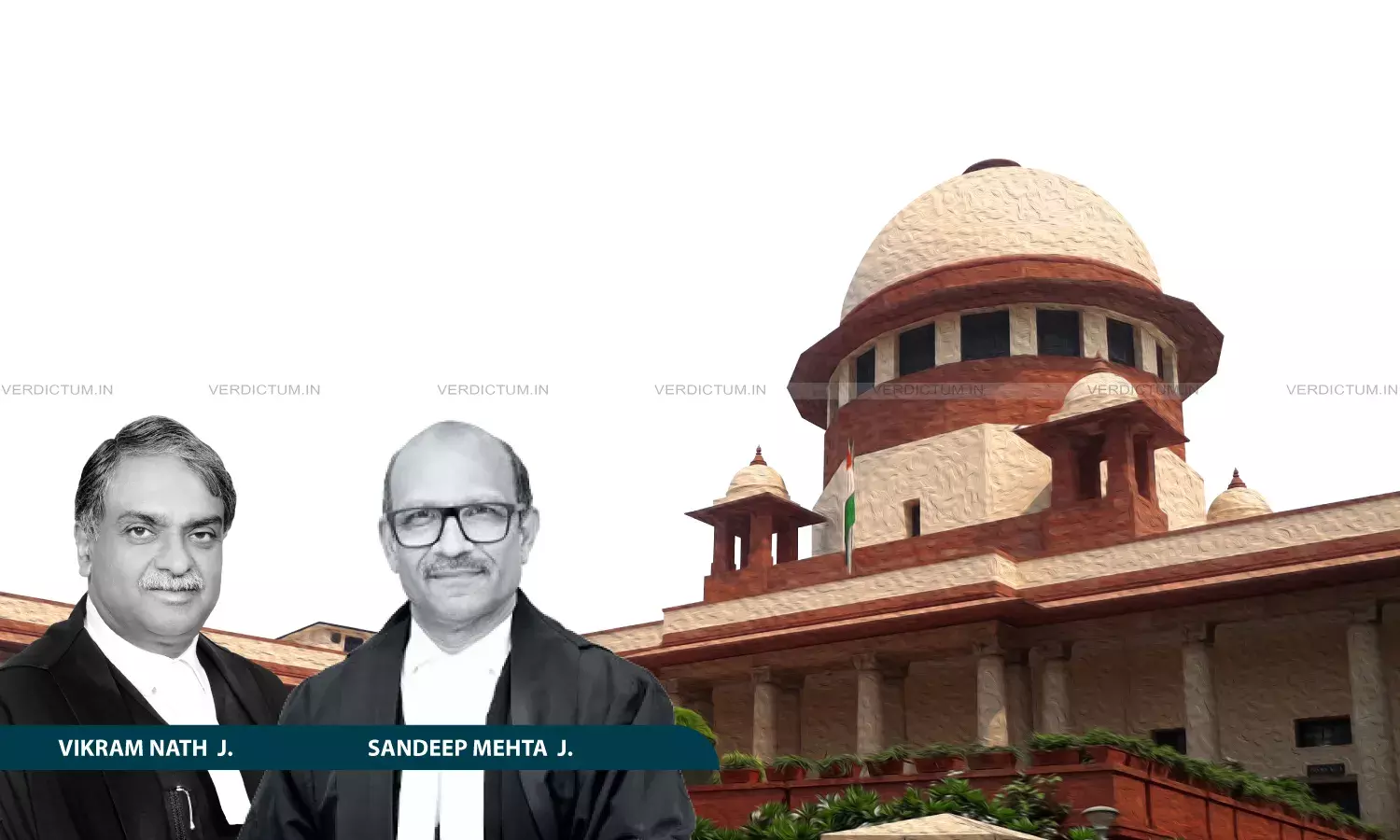Procedure Not Tool To Deny Justice: Supreme Court Orders Appointment Of ST Woman Who Missed Medical Examination Due To Date Confusion
The High Court had dismissed both her writ petition and intra-court appeal, ruling that her failure to attend the medical test.

Justice Vikram Nath, Justice Sandeep Mehta, Supreme Court
The Supreme Court has directed the Jharkhand Public Service Commission (JPSC) to appoint a Scheduled Tribe (ST) candidate to the State civil services after she was wrongly excluded from the selection process for missing the medical examination, which she had inadvertently skipped due to confusion in the dates communicated.
The High Court had dismissed both her writ petition and intra-court appeal, ruling that her failure to attend the medical test scheduled immediately after her interview was sufficient cause for disqualification.
A Bench of Justice Vikram Nath and Justice Sandeep Mehta overturned the decision of the Jharkhand High Court, which had previously upheld the JPSC’s rejection of her candidature.
Background
Appellant had successfully cleared both the preliminary and mains examinations conducted by the JPSC. She had also appeared for the interview and document verification, making her one of the final candidates in consideration for selection. However, she did not attend the medical examination that followed, leading to the rejection of her candidature.
Finding
The Supreme Court took a strong view against what it termed a disproportionate and procedural punishment for a potentially minor lapse.
“Procedure, a handmaiden to justice, should never be made a tool to deny justice or perpetuate injustice, by any oppressive or punitive use,” the Court observed, cautioning against rigid adherence to process at the cost of substantive justice.
The Bench questioned the logic behind assuming any deliberate intent on her part to miss the medical examination.
“We therefore, fail to understand why would the appellant intentionally omit to appear for medical examination and thus, be punished so disproportionately as has been done in this case. Even if it is accepted that the appellant was negligent in not being available for medical examination as per prescribed schedule, the appellant deserves to be dealt leniently,” the Court said.
The Court also referred to its landmark judgment in Nitisha v. Union of India to apply the principles of indirect discrimination in recruitment procedures. It held that the lack of clarity regarding the date of the medical examination amounted to unfair treatment in the context of Tirkey’s case.
“We thus, have no hesitation to hold that non-appearance for medical examination without there being a proper clarity of which day the candidate is expected to appear is discriminatory qua the present appellant,” the Bench held.
In light of the above findings, the Court directed, “We direct respondent no. 3 to take steps to conduct the medical examination of the appellant. In case the appellant successfully qualifies the medical examination. We further direct the respondents to create a supernumerary post for appointment of the appellant,”. The Court however, added, “The appellant would be entitled to continuity of service from the date the last selected candidate joined pursuant to the selections held against the Advertisement No.01 of 2021. Appellant would be placed at the bottom of the said select list with all consequential benefits of seniority, increments etc. but no financial benefits would be extended for the said period.”
Cause Title: Shreya Kumari Tirkey v. The State of Jharkhand & Ors.
Appearance:
Appellant: Advocates Neeraj Shekhar, Kshama Sharma, Ramendra Vikram Singh, Rajesh Maurya, and Ujjwal Ashutosh.
Respondents: Advocates Pallavi Langar, Himanshu Shekhar, Parth Shekhar, Vijay Singh, Surajit Basu, Kirtikar Sukul, Aarti Harish Bhandari, and Ugranath Kumar.


